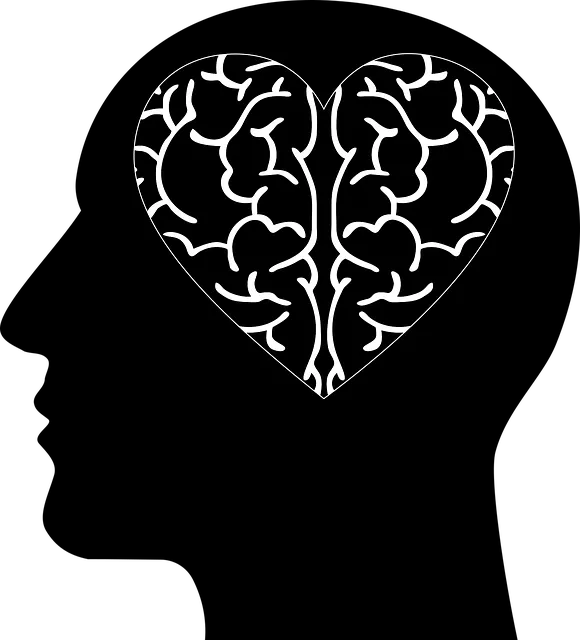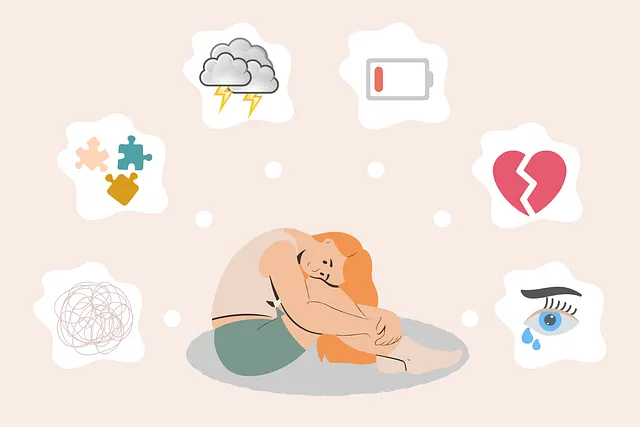The Kaiser Permanente behavioral health center in Wheat Ridge utilizes RFM (Reach, Frequency, and Money spent) data to enhance mental healthcare services. By analyzing client engagement, financial investment, and program participation, therapists identify high-risk individuals and tailor personalized interventions for anxiety relief. Cultural sensitivity is paramount, ensuring resilience-building exercises resonate with diverse backgrounds. The center offers holistic approaches, including group therapy and workshops, leveraging evidence-based practices to promote mental well-being. Collaborative engagement, open communication, and data-driven evaluation ensure the success of RFM initiatives and resilience-building programs tailored to the specific needs of the target population.
“Discover how Resistance, Flexibility, and Mastery (RFM) exercises are transforming behavioral health at the Kaiser Permanente Wheat Ridge Center. This comprehensive guide explores the integration of RFM into mental health programs, drawing from a successful case study. Learn about designing tailored resilience-building activities, engaging clients and staff, and measuring the profound impact of these initiatives. By implementing these strategies, behavioral health centers can foster resilience and enhance patient outcomes.”
- Understanding RFM and Its Application in Behavioral Health
- The Kaiser Permanente Wheat Ridge Center: A Case Study
- Designing Resilience-Building Exercises for Effective Implementation
- Engaging Clients and Staff: Strategies for Success
- Measuring Impact: Evaluating the Outcomes of RFM Programs
Understanding RFM and Its Application in Behavioral Health

At Kaiser Permanente behavioral health center Wheat Ridge, understanding RFM (Reach, Frequency, and Money spent) is crucial for effective implementation of resilience-building exercises. This data-driven approach allows healthcare professionals to segment clients based on their engagement with mental health services, enabling tailored interventions. By analyzing how often individuals attend sessions, the financial resources they invest, and the extent of their participation in programs like Compassion Cultivation Practices, therapists can identify those most at risk and design targeted strategies for anxiety relief.
The application of RFM goes beyond mere cost-effectiveness; it underscores the importance of Cultural Sensitivity in Mental Healthcare Practice. By considering individual experiences and cultural backgrounds, resilience-building exercises can be adapted to resonate more deeply with each client. This personalized approach fosters trust and engagement, ultimately enhancing the effectiveness of interventions aimed at promoting mental well-being and reducing symptoms of conditions like anxiety.
The Kaiser Permanente Wheat Ridge Center: A Case Study

The Kaiser Permanente Wheat Ridge Center stands as a beacon of hope and resilience in behavioral health care. This renowned facility, nestled within the vibrant community of Wheat Ridge, Colorado, has pioneered innovative approaches to mental health treatment and policy analysis. As part of the Kaiser Permanente network, it leverages its resources and expertise to advocate for evidence-based practices and emotional healing processes.
The center’s commitment to resilience building is evident through its diverse range of programs and exercises designed to foster self-awareness. From group therapy sessions to individual counseling and specialized workshops, the Wheat Ridge Center offers a holistic approach to mental well-being. By integrating Self-Awareness Exercises into their treatment plans, they empower individuals to navigate life’s challenges with greater fortitude, ultimately enhancing their overall resilience.
Designing Resilience-Building Exercises for Effective Implementation

When designing resilience-building exercises for implementation at Kaiser Permanente behavioral health center Wheat Ridge, it’s crucial to tailor activities that cater to the specific needs and challenges of the target population. These exercises should not only be engaging but also evidence-based, drawing from established practices in stress management workshops and self-esteem improvement programs. Incorporating interactive elements like group discussions, mindfulness sessions, and confidence-boosting techniques can create a supportive environment where individuals feel empowered to navigate life’s stressors.
The curriculum must be modular, allowing for flexibility in delivery. This approach ensures that exercises can be adapted based on the evolving needs of participants, whether it’s focusing more on coping strategies for anxiety or building resilience against specific environmental factors. By integrating these sessions into existing healthcare services, Kaiser Permanente Wheat Ridge can foster a holistic well-being model that not only addresses symptoms but also empowers individuals with long-lasting tools to enhance their overall mental resilience.
Engaging Clients and Staff: Strategies for Success

At the Kaiser Permanente behavioral health center Wheat Ridge, engaging clients and staff is a cornerstone of successful RFM (Reliability, Frequency, Monetary value) and resilience-building exercises implementation. To foster a collaborative environment, the center leverages open communication channels, encouraging feedback from both clients and employees throughout the process. This two-way dialogue helps tailor programs to meet diverse needs, ensuring everyone feels involved and invested in the initiative.
One effective strategy is integrating Self-Care Routine Development for Better Mental Health into daily activities. By promoting Anxiety Relief techniques and providing platforms for Social Skills Training, the center empowers both clients and staff to build resilience. These inclusive practices not only enhance individual well-being but also create a supportive atmosphere where everyone can thrive, ultimately strengthening the overall effectiveness of RFM exercises.
Measuring Impact: Evaluating the Outcomes of RFM Programs

Evaluating the outcomes of RFM programs is a crucial step in understanding their impact on individuals’ resilience and overall emotional well-being. At Kaiser Permanente behavioral health center Wheat Ridge, we employ robust measurement tools to assess the effectiveness of our interventions. This involves tracking participant progress through pre-and post-program surveys, which gauge improvements in stress management, anxiety relief, and the application of Mind Over Matter Principles.
By comparing these metrics, we can identify successful programs that enhance resilience and promote emotional well-being techniques. This data-driven approach ensures our initiatives remain relevant and impactful, providing the best support for those seeking to navigate life’s challenges with greater equanimity.
The implementation of RFM (Resilience, Flexibility, and Mastery) programs in behavioral health settings, as exemplified by the Kaiser Permanente Wheat Ridge Center, demonstrates significant potential for enhancing client outcomes. By integrating resilience-building exercises tailored to individual needs, these programs foster adaptability and coping mechanisms. Engaging both clients and staff through collaborative strategies ensures a holistic approach, leading to improved mental well-being. Measuring the impact of RFM initiatives is crucial for ongoing refinement and success, providing valuable insights into the effectiveness of these interventions in the unique context of Kaiser Permanente behavioral health centers like Wheat Ridge.






